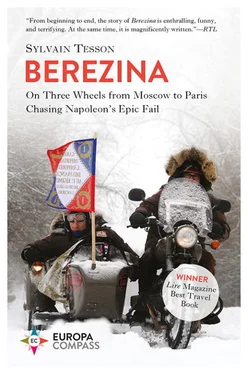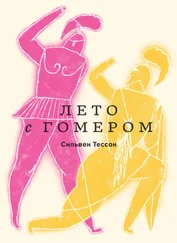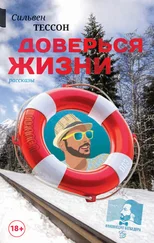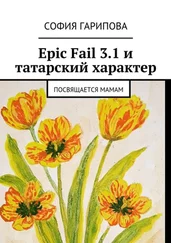This fancy-dress army was walking deeper and deeper into horror. On occasion, François tells us, the sight of these infantrymen in rags, with long icicles hanging from every hair in their beard, covered in skins “burned by the rare bivouac fires,” still managed to make a soldier laugh. Was laughter perhaps a way of warding off misfortune? Was it death sending its spasms?
The balance of wealth was reversed. Those who had loaded themselves with gold bells, Gardner porcelain, Petrodvorets-manufactured clocks, Baltic amber, and Siberian ivory were now coveting furs, flour, and even battered pans, which, on the market of ordeals, would be worth infinitely more than the rivers of pearls stolen from Moscow countesses. People started shedding their harvest. So the road, Bourgogne writes, ended up covered with “precious objects such as paintings, candelabra, and many books […] copies of Voltaire, Jean-Jacques Rousseau, Buffon’s Natural History , bound in red morocco leather and with gilded spines.” Therefore, those who’d taken the precaution of kitting themselves out in earnest became the masters and exploiters of those who were carrying useless treasures, and would make money out of a pound of potatoes or a handful of oats, thereby adding individual usury to the general distress.
We were driving along the road, keeping to fifty miles an hour on the counter display. Behind the hedge of willows and reeds, stiff from the frost, ponds were slumbering. And, at the bottom of the ponds, lay the gold from the looting of Moscow. After about thirty miles, the Ural started showing signs of weakness. The engine was strained by the accumulation of snow. The valves were overheating and the track was getting worse. I would make Goisque and Gras frequently get off so we could take a section full of potholes on foot. The oil pan was scraping against the frozen mud. When a wheel sank into a hole, the exhaust pipe would slam hard against the ground. I had to step on the gas to push through. We exhausted the animal. I cut the engine fifty miles from Dorogobuzh. “We’re going to break the bike, guys,” I said. “We have to turn back.”
“The Guard dies but does not turn back,” Gras, who was turning all heroic, said.
“It’s not about the Guard but about the sidecar, pal.”
The alternative was to return to Vyazma and take the main road, the new Moscow-Smolensk highway, which ran parallel, twelve miles north of the historical route. We weren’t exactly thrilled about going back on ourselves, but we took to the track anyway, in the opposite direction.
The engine’s hiccuping doubled. The Ural was in severe pain. This wasn’t a machine suitable for grinding through powder. Vyazma was still far away. We wiped the soot off the spark plugs, then I left Goisque and Gras walking in the snow and drove to the village of Vasino to look for a driver to go pick up my friends. In the main street of the hamlet, an Uzbek grocer was in the process of dismantling his stall.
The guy was suspicious. I think the bicorn attached to the basket didn’t make a good impression on him. He found it unlikely that a group of French would have picked the triple whammy of winter, a bike with sidecar, and the old Smolensk road to go back home. I was getting muddled in my explanations which resulted in the fact that we were repeating the journey of the Retreat and that I’d left my two friends behind.
“But Paris is in the opposite direction,” he said.
“Yes, but the spark plugs are dead,” I said. “We’ve backtracked precisely to change them in Vyazma.”
Five hundred rubles softened his reluctance. Mentioning the village of Tim, where he was born and which I’d gone through on horseback, ten years earlier, while crossing the steppes of the former Soviet Turkmenistan did the rest. I remained in the village while he went to fetch Gras et Goisque.
“How will I recognize them?” he said before leaving.
“Do you know many people walking on foot on Russian roads, these days? One will probably be reading and the other taking pictures of signposts,” I said.
In Vyazma, we changed spark plugs, gloves, and route. Then we set off straight west, along the awful Moscow-Smolensk highway where the procession of thirty-three-ton trucks reminded us in heavy bursts that Russia had joined the free-trade carousel.
During the first weeks of the Retreat, the strategy of the Russians left the French flabbergasted. With the exception of Maloyaroslavets, where Dokhturov had led his charge, the Russians did not attack. Caulaincourt says, “The Emperor could not understand Kutuzov’s march leaving us alone.” The Field Marshal wanted to let Napoleon’s army drain itself of its strength of its own doing. In Maloyaroslavets, the Russian losses strengthened this resolve. It served no purpose to deal blows to troops that were still aggressive, when you could simply escort them in their agony. The balance of power with the French was to the Tsar’s disadvantage. The Grande Armée was still combative. Napoleon was still concealing reserves of strategic genius. The Guard was untouched. And the cold bit at the Russians as much as at the French, with no patriotic distinction! If the Russian army, stretched to the maximum of its power, attacked instead of simply harrying, it would risk destroying itself… Around him, generals grumbled, officers champed at the bit, wanting to take off. The desire for revenge couldn’t live with this caution. Even Alexander I would scold his Field Marshal, “Inaction is incomprehensible.” But the obese old man held on to his resolution. Later, by way of a rehabilitation, he received literary glory. In War and Peace, Tolstoy insists the Russian chief was a genius. “Napoleon’s collapsing army was fleeing Russia as quickly as possible, in other words it was doing the very thing any Russian could wish for. Why then undertake an operation… ? What would have been the point when, from Moscow to Vyazma, without a fight, a third of this army had melted?” And Tolstoy added, in case the reader had not understood: when cattle encroaches on your territory, is it better to push it quickly toward the exit or to block its way, hold it back, close the gates of the enclosure, and whip it to blood?
History justified Kutuzov: all the skirmishes between Russians and French were to the advantage of the latter. The Retreat from Russia therefore rests on this paradox, unique in Human History: an army marched, from victory to victory, toward its total annihilation!
Night had come down on the plain. The hundred miles between Vyazma and Smolensk were not pleasant. The condensation blinded you. I was trying to remember the quotation by Cendrars: “One should close one’s eyes when traveling.” The poet hadn’t intended these words for Ural travelers in the winter. Wiping my visor had become an obsession. In the end, I was looking at the road through a square quarter of an inch of transparent plastic spared by the flower patterns of the frost. I was so numbed by the cold that all I longed for was sleep, which was incompatible with driving. Cold is a ferocious beast. It grabs you by a limb, sinks its teeth into it, doesn’t let go, and its venom gradually spreads through your being. Mountain climbers know that numbness is a response that is mortally tempting to storms. On a motorbike, if you’ve managed to wrap up warm, the slightest gesture that moves the edifice of your protection by as little as half an inch could be fatal: the cold will be injected into you. At fifty miles an hour, it will exploit the slightest gap in the barricade of your clothes. I was so exhausted that I would deliberately swerve to the left when a truck wanted to overtake us, so that the roar of the horn would give me a few reviving slaps and keep me awake.
“Smolensk, sixty miles,” a blue sign stated. Vassily and Vitaly had called us earlier, when we had returned to Vyazma. This time they had really left Moscow and, at full throttle, had sworn on the gods of all the Russias that they would catch up with us by midnight. “We’ll have dinner with you in Smolensk!”
Читать дальше












